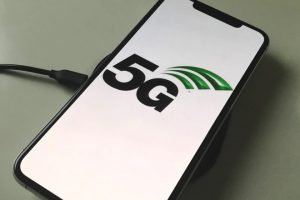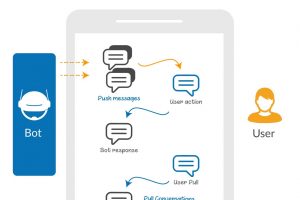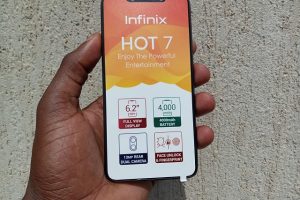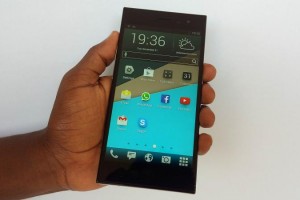WhatsApp Messenger is a proprietary, cross-platform instant messaging application for smartphones. In addition to text messaging, users can send each other images, video, and audio media messages. The client software is available for Android, BlackBerry OS, iOS, Series 40, Symbian, and Windows Phone. The company by the same name was founded in 2009 by Brian Acton and Jan Koum, both veterans of Yahoo and is based in Santa Clara, California. This app has since 2009 climbed to the top charts of all the popular App stores. It was voted the Best Overall Mobile App at Mobile World Congress 2012, and was chosen by TechPost readers as one of their best apps in 2012.
According the the Next Web, the App hit a staggering record of 10 billion messages sent per day and just recently went on to overdrive with a new record of 18 billion messages per day! I’ve used Whatsapp since I got my first Android phone and I’ve never looked back. WhatsApp is only a representative of other similar services such as Viber (which I really love as well), Apple’s iMessages, Android’s Gtalk, Facebook’s Messenger, Blackberry Messenger, eBuddy and the list goes on. These messaging services have significantly cut down on the revenue streams that mainstream Telecoms used to enjoy from SMS. In this post, I’ll answer why this app is such a sensational hit around the globe based on my personal experience with it.
It’s a killer-app
You’ve probably heard about the so called killer apps or platforms in Tech circles. These are apps that keep Tech executives up all night because, they literary do what their name suggests — kill their businesses! They’re are also known as disruptive technologies because they completely disrupt or annihilate existing platforms by introducing a different Technological paradigm that supersedes their predecessors in several different aspects. For instance, the PC “killed” the “Type-writer”, Skype killed long distance or international calls offered by traditional telecoms, Facebook “killed” MySpace and now WhatsApp “killed” or is killing (as you might have guessed), SMS. You wouldn’t expect me to say this as I endorsed SMS as the No.1 killer app on mobile almost three years ago! As the Wall Street Journal puts it, the app is the Skype of texting.
Easy to setup an account and use
Usually, most internet services require you to create a username and password and then authenticate you each time through the same. With WhatsApp, there’re no usernames and passwords to create. You don’t have to logout and login each time you start the application. Because it’s a mobile based app, it takes advantage of your existing mobile phone number which is already unique, sets you up the first time and then fades in the background, leaving you to communicate with friends and family members in your contact book (who also should have the app installed) just like SMS. That convenience and simplicity sets it way apart from the conventional internet services like Gtalk, Facebook messenger, eBuddy, IMO etc.
It’s super feature rich
WhatsApp has a plethora of features that are hidden behind it’s simplistic interface. By enabling sharing of photos, videos, audio, location and text with people in your contact book all in an easy and intuitive way, the app sets itself as a one-stop communication hub for your phone. Traditional Telecoms in years past, have attempted to provide Multimedia Messaging (MMS) to subscribers without any slightest success. MMS was overly expensive (it was Shs UG 300), consumed a lot of the Operator’s network resources and the handsets at the time weren’t ready for prime-time. MMS is long dead and thank God it is because Telecoms would be ripping us off!
It’s insanely cheap
WhatsApp service is FREE for the first one year of activation and then you pay $1/year there after. When I calculated the costs that I’ve so far incurred sending messages using the app compared to the cost I would have incurred using SMS, I can confidently say $1/year is practically “Free”. WhatsApp is that insanely cheap(and free for the first year) because it uses your data connection (GPRS, EDGE, 3G or 4G) instead of the conventionally SMS channel provided by the Telecoms. As such because the text messages are short and hence are of small data sizes ( usually Bytes or KiloBytes), for someone on a data plan, the cost is remarkably small, if not negligible. There has been no limit to the number of folks that have pointed out that SMS is an obnoxious and bloated cash cow, carriers charging a fortune for a simple 160 character, 140 byte message, despite it costing them virtually nothing to send (as it travels along an always live tower control channel). This insane calculation by Rick Falkvinge points out that the cost of sending a text message is greater than what it costs to send the same message from Mars to Earth.
WhatsApp remains to be seen as a classic example of small companies without fat budgets can be innovative enough as to deliver insanely great services to end users and in some cases disrupting the status quo set by the big companies. What do you think of WhatsApp? Have you used it? Join the conversation in the comments.













Whatsapp is one of those game changers since its SMS + Email + Chat all bundled into one with added security of a person needing to know your number and you can block contacts.
The best part about is the ability to exchange media – photos, video, and audio as long as you have data bundles.
Also if there is no data the message is queued, till data bundles are available which also allows for offline communication
Also while I love “free” services the million dollar question is how they will monetize the service to stay in business …
Musoke, they do. They charge $1/year after the first year of free service which is a enough revenue given their subscriber base. You can read here why they didn’t go for ads http://blog.whatsapp.com/index.php/2012/06/why-we-dont-sell-ads/
David that is a great pitch, but really $1/year is not enough to cover the service development, hosting expenses for the media we share (given that when they start charging most people – including Ugandans will leave the service or change to their alternate sim card number account) #justsaying
I doubt if most people will change. Ugandans are entrepreneurs and soon someone is going to figure out how to make it possible for those without electronic cards to pay whatsapp. Btw, when they hit 1 Billion users, 1$ a year per person shall be close to $1B per year and I see no reason why they wouldn’t make it.
One thing though is that I never ever trust business folks. As long as they don’t change their current business model, I shall always suspect them of selling private data to large corporations. Someone’s gotta make money, right?
Whatsapp is one of those first 3 apps I install every time I do a phone reset (Yes, I reset my phone every month or so to get rid of accumulating clutter). I have used many IM services before but none of them has ever given the smooth integration it provides, it almost feels like a default phone service.
I guess one of their biggest strengths is taking care of the many platforms available. While everyone wants to go Android and iOS only and the occasional black berry – even twitter – these guys are busy making sure that you use their service on just about any platform. Now, ain’t that just cool?